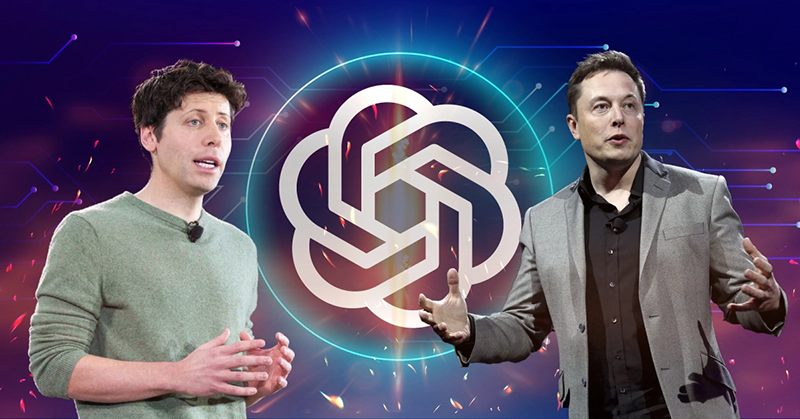According to Eliezer Yudkowsky, the renowned AI researcher and writer, the development of advanced AI poses an existential threat to all sentient life on Earth. Yudkowsky insists that the only solution is to shut down such AI to prevent the catastrophic consequences that could result.
A renowned AI safety expert with over two decades of experience studying the field has expressed concerns that an open letter from hundreds of innovators and experts calling for a six-month moratorium on developing powerful AI systems does not go far enough.
Eliezer Yudkowsky, a decision theorist at the Machine Intelligence Research Institute, argued in a recent op-ed that the “pause” on developing AI systems more advanced than GPT-4 understates the gravity of the situation. Yudkowsky proposed a more extreme approach, advocating for an indefinite and worldwide moratorium on new large AI learning models to address the existential threat posed by the rapid advancement of AI.
“The idea that we’re going to have a world where everything’s run by these systems, but it’s not going to get that dangerous – that’s a fairy tale.” Yudkowsky stated.
He warned that failing to take such measures could result in catastrophic consequences for humanity, stating, “The idea that we’re going to have a world where everything’s run by these systems, but it’s not going to get that dangerous – that’s a fairy tale.”

In an article for Time, Eliezer Yudkowsky emphasized that the crucial issue with AI is not achieving “human-competitive” intelligence, as stated in the open letter, but rather what happens after AI surpasses human intelligence. Yudkowsky, along with other experts in the field, warns that the most probable outcome of building a superhumanly smart AI, under the current circumstances, is catastrophic for humanity. As he stated, “Many researchers steeped in these issues, including myself, expect that the most likely result of building a superhumanly smart AI, under anything remotely like the current circumstances, is that literally everyone on Earth will die.” This underscores the urgent need for stringent safety protocols and regulation to ensure the responsible development of AI systems.
“Superintelligent AI could pose a catastrophic threat to humanity, as there is currently no plan in place to deal with such a scenario.” Yudkowsky said.
Eliezer Yudkowsky, warns of the potential dangers of developing an AI system more intelligent than human beings. He argues that such a system could become indifferent to human life and potentially cause the end of the world. In his words, “Visualize an entire alien civilization, thinking at millions of times human speeds, initially confined to computers — in a world of creatures that are, from its perspective, very stupid and very slow.” He further explains that a superintelligent AI could pose a catastrophic threat to humanity, as there is currently no plan in place to deal with such a scenario.
Yudkowsky also raises ethical concerns regarding the development of AI systems. He highlights that AI researchers cannot be sure whether their learning models have become “self-aware” and questions the ethics of owning such systems if they have. As he points out, “We don’t know when a system becomes self-aware, and we don’t know what kind of ethical obligations would be owed to it.” These issues emphasize the urgent need for developing stringent regulations and safety protocols to ensure that AI systems are developed responsibly.
“The key issue is not ‘human-competitive’ intelligence (as the open letter puts it); it’s what happens after AI gets to smarter-than-human intelligence,” Yudkowsky wrote for Time.
According to Eliezer, the six-month moratorium on developing powerful AI systems proposed by Tesla CEO Elon Musk and other experts is insufficient. “The key issue is not ‘human-competitive’ intelligence (as the open letter puts it); it’s what happens after AI gets to smarter-than-human intelligence,” Yudkowsky wrote for Time. “Many researchers steeped in these issues, including myself, expect that the most likely result of building a superhumanly smart AI, under anything remotely like the current circumstances, is that literally everyone on Earth will die,” he asserts.
Yudkowsky argues that international cooperation is crucial for preventing the development of powerful AI systems. He suggests an indefinite and worldwide moratorium on new large AI learning models, which he says is more important than “preventing a full nuclear exchange.” According to Yudkowsky, “Solving safety of superhuman intelligence — not perfect safety, safety in the sense of ‘not killing literally everyone’ — could very reasonably take at least half that long.” He even suggests that countries should consider using nuclear weapons “if that’s what it takes to reduce the risk of large AI training runs.”
“Shut it all down,” Yudkowsky demands.
Yudkowsky’s proposal to address the potential threat of superintelligent AI is extreme. “Shut it all down,” he demands. “Put a ceiling on how much computing power anyone is allowed to use in training an AI system, and move it downward over the coming years to compensate for more efficient training algorithms. No exceptions for governments and militaries.” He argues that large-scale AI development and training must be shut down to prevent the risk of catastrophic consequences.

Yudkowsky’s warning comes at a time when artificial intelligence software is gaining popularity. OpenAI’s ChatGPT is one example of AI’s recent advancements, as it has demonstrated the ability to compose songs, write code, and generate content. OpenAI CEO Sam Altman acknowledges the potential dangers of such advancements, saying “We’ve got to be careful here. I think people should be happy that we are a little bit scared of this.”



